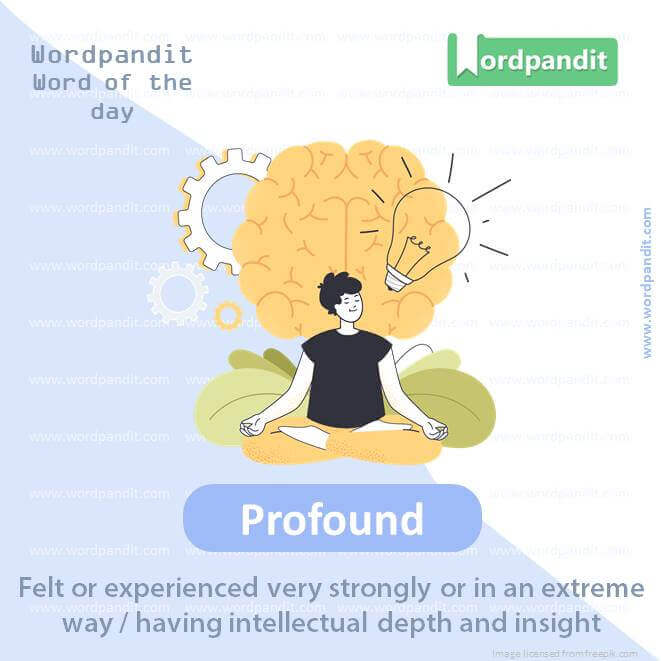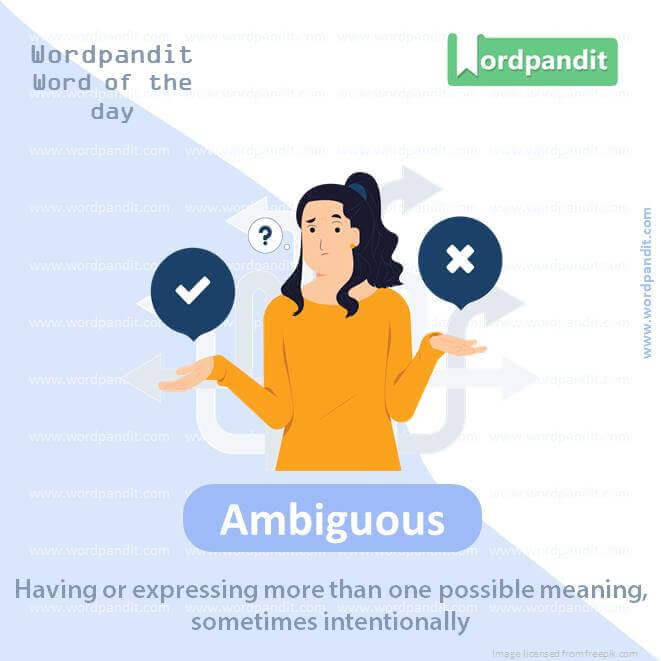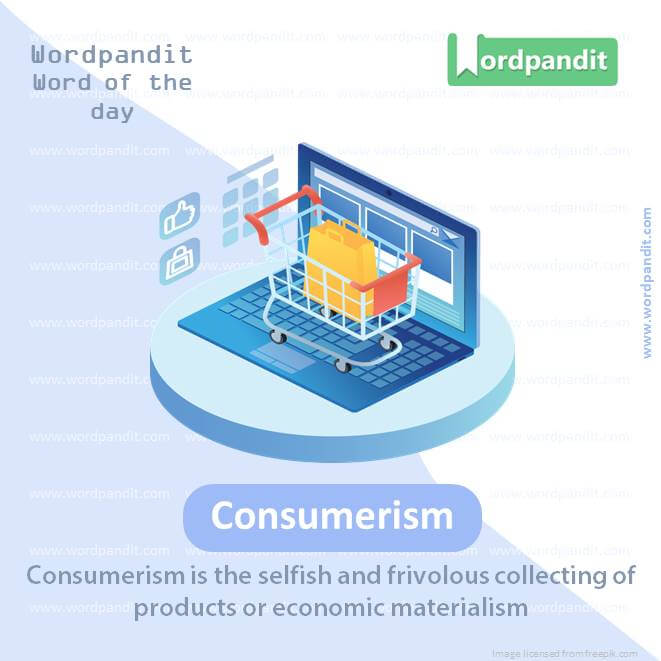Daily Vocabulary Words: List of Daily Used Words in Leading Indian Newspapers
Hi there. Welcome to this special section @ Wordpandit. Our endeavour here is straightforward: highlighting daily vocabulary words that you would come across in leading newspapers in the country. We have included the following newspapers in our selection:
• The Times of India
• The Economic Times
• Hindustan Times
• Mint
• Indian Express
We are putting in extensive work to develop your vocabulary. All you have to do is be regular with this section and check out this post daily. This is your repository of commonly used words; essentially, we are posting a list of daily used words. Hence, this has significant practical application as it teaches you words that are commonly used in leading publications mentioned above.
Visit the website daily to learn words from leading Indian newspapers.

WORD-1: HEGEMONY
CONTEXT: “The shifting dynamics in the South Asian region have raised questions about the future hegemony of traditional powers in geopolitics.”
SOURCE: The Times of India.
EXPLANATORY PARAGRAPH: Hegemony is a big word that means when one person or group is in charge and everyone listens to them or does what they say. It’s like when the biggest kid on the playground decides what game to play, and all the other kids follow along because they want to be like the big kid.
MEANING: The country’s continuing desire for political and military hegemony (noun).
PRONUNCIATION: huh-JEM-uh-nee
SYNONYMS: Dominance, Leadership, Control, Supremacy, Authority, Command, Influence
USAGE EXAMPLES:
1. The king’s hegemony over the kingdom meant that he made all the important decisions.
2. In the classroom, the teacher has hegemony, and the students listen to her instructions.
3. The team’s hegemony in the sport made them the champions for many years.
4. The company’s hegemony in the market allowed it to set the prices for its products.

WORD-2: PROFOUND
CONTEXT: “The environmentalist’s speech had a profound impact on the youth, prompting many to participate actively in conservation efforts.”
SOURCE: Live Mint.
EXPLANATORY PARAGRAPH: Profound is a fancy word for when something is very, very deep or important. Imagine thinking really hard about something and discovering a secret that no one else knows. That’s like finding something profound.
MEANING: Felt or experienced very strongly or in an extreme way / having intellectual depth and insight (adjective).
PRONUNCIATION: proh-FOWND
SYNONYMS: Deep, Meaningful, Significant, Intense, Serious, Wise, Thoughtful
USAGE EXAMPLES:
1. The old book had a profound message that made everyone think about life.
2. After talking to her grandfather, she gained a profound understanding of history.
3. The scientist made a profound discovery that changed the way we understand the universe.
4. His words had a profound impact on her, and she never forgot them.
WORD-3: RESOUNDING
CONTEXT: “The latest electoral win was a resounding success for the party, indicating a strong mandate from the people.”
SOURCE: Hindustan Times.
EXPLANATORY PARAGRAPH: Resounding is a word that describes something really loud and clear, like when you clap your hands and it makes a big noise that everyone can hear.
MEANING: Very loud and clear, like a big noise (adjective).
PRONUNCIATION: ri-ZOWN-ding
SYNONYMS: Deafening, Thunderous, Thundering, Ear-splitting, Piercing, Clamorous, Blaring
USAGE EXAMPLES:
1. The resounding applause filled the theater after the amazing performance.
2. The thunderstorm had resounding thunder that shook the windows.
3. Her success in the competition was met with resounding cheers from the crowd.
4. The alarm clock made a resounding noise that woke him up quickly.

WORD-4: AMBIGUOUS
CONTEXT: “The newly introduced regulations are ambiguous, leading to calls for further clarification by industry leaders.”
SOURCE: The Economic Times.
EXPLANATORY PARAGRAPH: Ambiguous is a big word that means something is not clear or can have more than one meaning. It’s like a riddle that is tricky because it could mean different things to different people.
MEANING: Having or expressing more than one possible meaning, sometimes intentionally (adjective).
PRONUNCIATION: am-BIG-yoo-us
SYNONYMS: Unclear, Vague, Cryptic, Doubtful, Hazy, Obscure, Uncertain
USAGE EXAMPLES:
1. His ambiguous answer left everyone wondering what he really meant.
2. The map’s instructions were so ambiguous that they got lost.
3. The teacher asked an ambiguous question, and the students didn’t know how to answer.
4. The message she received was so ambiguous that she didn’t know if it was good news or bad news.

WORD-5: ENDOWMENTS
CONTEXT: “Several endowments have been made by philanthropists towards healthcare infrastructure in rural areas.”
SOURCE: Indian Express.
EXPLANATORY PARAGRAPH: Endowments are like special gifts or talents that some people have. It’s like when someone is really good at singing or painting; they have special endowments that make them great at those things.
MEANING: A gift of money that will provide an income for a college or university, a hospital, or other organization (noun).
PRONUNCIATION: en-DOW-muhnts
SYNONYMS: Abilities, Gifts, Talents, Skills, Aptitudes, Blessings, Capacities
USAGE EXAMPLES:
1. Her endowments in mathematics made her a top student in the class.
2. The actor’s endowments for acting made him a famous movie star.
3. The school used its endowments to provide scholarships for students.
4. The scientist used his intellectual endowments to make important discoveries.
WORD-6: TOYING
CONTEXT: “The government is toying with the idea of introducing digital currency, looking at global trends and its potential advantages.”
SOURCE: Live Mint.
EXPLANATORY PARAGRAPH: Toying means playing with something, like when you play with your toys. It’s when you use your imagination to have fun with dolls, cars, or other fun things.
MEANING: Playing with something for fun, like toys (verb).
PRONUNCIATION: TOI-ing
SYNONYMS: Playing, Frolicking, Fooling around, Having fun, Enjoying, Dabbling, Gamboling
USAGE EXAMPLES:
1. The children were toying with their building blocks and making tall towers.
2. She enjoyed toying with her dolls and creating different stories for them.
3. The cat was toying with a ball of yarn, batting it around for entertainment.
4. They were toying with the idea of going on a picnic this weekend.
WORD-7: ULTRA-NATIONALISM
CONTEXT: “The rise of ultra-nationalism in certain parts of the world is reshaping the diplomatic landscape, leading to new alliances and confrontations.”
SOURCE: The Times of India.
EXPLANATORY PARAGRAPH: Ultra-nationalism is like when someone loves their country so much that they think it’s the best in the world and don’t like other countries. It’s good to love your country, but when it’s too extreme, it can cause problems.
MEANING: Extreme love and pride for one’s own country, sometimes leading to dislike or hatred for other countries (noun).
PRONUNCIATION: UL-truh NAT-ee-un-al-iz-uhm
SYNONYMS: Extreme Patriotism, Jingoism, Chauvinism, Nationalist Extremism
USAGE EXAMPLES:
1. His ultra-nationalism made him believe that his country was better than all others.
2. Extreme ultra-nationalism can lead to conflicts between countries.
3. The leader’s speeches promoted ultra-nationalism, causing tension with neighboring nations.
4. People should be proud of their country, but they should also respect other countries and not let ultra-nationalism divide them.

WORD-8: CONSUMERISM
CONTEXT: “The rapid growth of consumerism in urban centers is driving changes in advertising strategies and business models.”
SOURCE: The Economic Times.
EXPLANATORY PARAGRAPH: Consumerism is like when people really, really like buying things. It’s when they want to get lots of stuff, like toys, clothes, and gadgets because they think it will make them happy. It’s okay to buy things you need or really want, but sometimes people buy too much and forget about other important things.
MEANING: Consumerism is the selfish and frivolous collecting of products or economic materialism (noun).
PRONUNCIATION: kuhN-SOO-muh-riz-uhm
SYNONYMS: Materialism, Commercialism, Acquisitiveness, Shopaholism, Excessive Buying
USAGE EXAMPLES:
1. Some people think that consumerism is the reason why we have so many things in our house.
2. On Black Friday, many stores encourage consumerism by offering big discounts.
3. She realized that consumerism didn’t bring her happiness, so she started buying less.
4. The holiday season often sees a rise in consumerism as people buy gifts for their loved ones.
WORD-9: WEAPONISATION
CONTEXT: “The weaponisation of information in today’s digital age has given rise to concerns about the authenticity and manipulation of news.”
SOURCE: Hindustan Times.
EXPLANATORY PARAGRAPH: Weaponisation is a big word that means when something is turned into a weapon, like a tool or an idea used to hurt others. It’s like if you turned a harmless toy into something that could be used to hurt someone.
MEANING: Turning something into a weapon or using it to harm others (noun).
PRONUNCIATION: WEP-uh-nuh-zey-shuhn
SYNONYMS: Weaponization, Militarization, Armament, Conversion to Arms
USAGE EXAMPLES:
1. The country’s weaponisation of technology allowed it to defend itself better.
2. The evil scientist was planning the weaponisation of harmless animals.
3. The peaceful protest turned into a dangerous situation due to the weaponisation of objects.
4. The spy used the weaponisation of information to gain an advantage.
WORD-10: BURGEONING
CONTEXT: “The burgeoning start-up ecosystem in Bengaluru has caught the attention of international investors, promising new opportunities for innovation.”
SOURCE: Indian Express.
EXPLANATORY PARAGRAPH: Burgeoning is a word that means something is growing really fast and becoming bigger and bigger, like when a plant starts as a tiny seed and then becomes a tall tree.
MEANING: Growing and getting bigger very quickly (adjective).
PRONUNCIATION: BUR-juh-ning
SYNONYMS: Growing, Thriving, Expanding, Booming, Flourishing, Rapidly Increasing, Blooming
USAGE EXAMPLES:
1. The city’s burgeoning population led to the construction of many new houses.
2. The company’s burgeoning success allowed it to open new branches.
3. Her talent as a singer was burgeoning, and she was becoming famous.
4. The garden’s burgeoning plants filled the yard with beautiful flowers.
Vocabulary Exercises
In the domain of language learning, ‘vocabulary exercises’ are fundamental. They foster in-depth understanding, usage, and retention of vocabulary. By adopting a systematic approach, learning from ‘vocabulary exercises’ can become interactive, effective, and fun.
Understanding ‘vocabulary exercises’ begins with formulating an individualized learning plan. Based on varied language goals, different ‘vocabulary exercises’ might include flashcards, word mapping, or online quizzes. Formulating your unique approach can ensure consistent and targeted vocabulary growth.
One way to approach ‘vocabulary exercises’ is through exploration of themed vocabulary. Pick a theme of interest (such as technology, sports, or food) and exercise on words related to that theme. This method keeps the learning process engaging, relevant, and easier to remember due to the common thread connecting the words.
Another powerful means of ‘vocabulary exercises’ is frequent usage of words in sentences. Constructing sentences utilizes vocabulary in a contextual manner and serves as a practical demonstration of word usage, greatly reinforcing memory retention and understanding.
In the contemporary learning landscape, digital platforms provide innovative ‘vocabulary exercises’. These platforms offer games, quizzes, flashcards, and even community challenges which make learning vocabulary interactive and more dynamic.
It is essential to remember that consistency is crucial while undertaking ‘vocabulary exercises’. Regular practice ensures higher retention rates and better application of the learned vocabulary in real-world scenarios.
In conclusion, ‘vocabulary exercises’ are an integral part of language learning, contributing immensely to vocabulary expansion. Whether it’s through thematic vocabularies, sentence formation, or digital tools, when consistently practiced, ‘vocabulary exercises’ can provide a stimulating and multifaceted approach to enriching your linguistic prowess.













